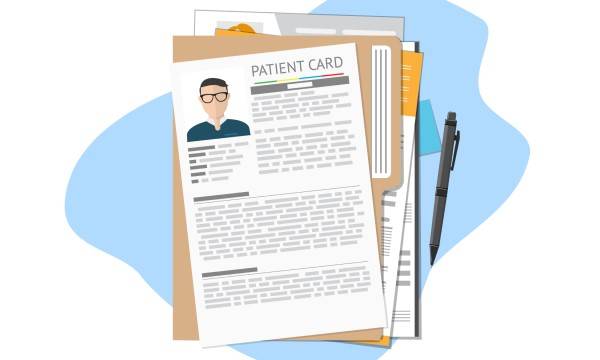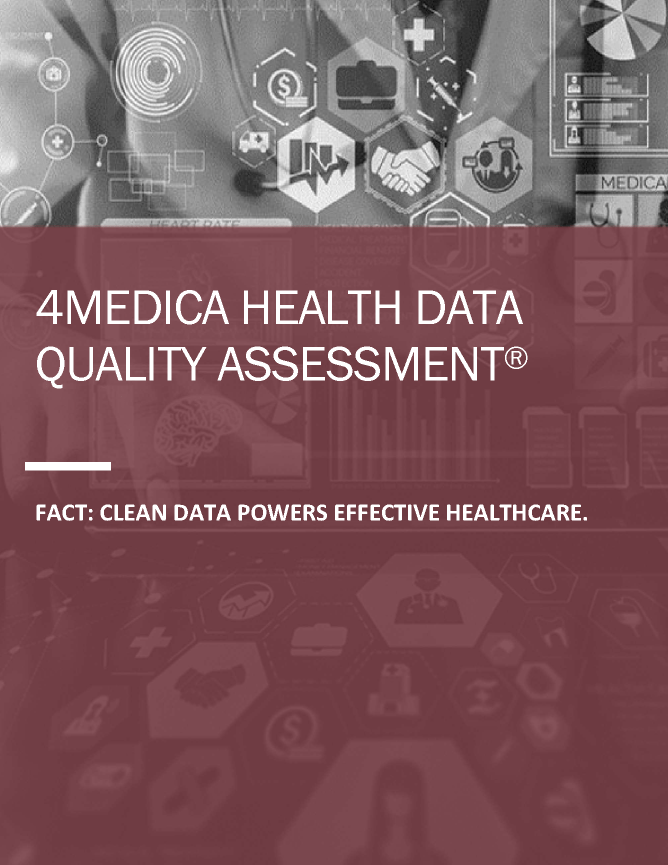In today’s digital age, healthcare organizations are generating vast amounts of data on a daily basis. The effective management of this data has become a critical aspect of delivering high-quality healthcare services. Healthcare data management plays a vital role in organizing, storing, and safeguarding patient information, while also enabling healthcare professionals to make data-driven decisions.
This blog post explores the concept of healthcare data management, highlights its benefits, and presents some solutions to optimize data management in the healthcare industry.

What is Healthcare Data Management?
Healthcare data management is a systematic process that involves collecting, organizing, storing, and utilizing healthcare data to support decision-making, improve patient care, and streamline healthcare operations. It encompasses the implementation of policies, procedures, and technologies to ensure the efficient handling and security of sensitive patient information.
Key Components of Healthcare Data Management
Data Collection involves gathering patient information from various sources, including electronic health records (EHRs), medical devices, laboratory results, and administrative systems. This data collection is typically done through secure interfaces and standardized formats to ensure accuracy and completeness.
Data Storage and Organization
Data Storage and Organization require healthcare data to be stored and organized in a secure and accessible manner. This involves utilizing databases, data warehouses, or cloud-based storage solutions. Proper indexing and categorization of data enable efficient retrieval and analysis when needed.
Data Quality and Integrity
Quality and integrity are crucial for effective data management. This involves implementing data validation and verification processes to ensure the accuracy, completeness, and consistency of the data. Data cleansing, normalization, and deduplication techniques are employed to identify and rectify any errors or inconsistencies.
Data Governance
Governance encompasses the establishment of policies and procedures for data access, sharing, privacy, and security. It ensures that the right people have access to the right data at the right time while maintaining compliance with regulatory standards and data privacy regulations. Data ownership, accountability, and stewardship are also defined within the organization.
Data Lifecycle Management
Lifecycle management involves managing healthcare data from its creation to deletion. This includes data capture, storage, retention, archival, and disposal procedures. Proper data lifecycle management ensures compliance with legal and regulatory requirements while managing storage and infrastructure costs.
Importance of Healthcare Data Management
Effectively managing healthcare data offers several crucial advantages. It facilitates evidence-based decision-making by ensuring that healthcare professionals have access to complete and up-to-date patient information. This, in turn, leads to more accurate diagnoses, effective treatment plans, and improved patient outcomes.
By reducing medical errors and enhancing patient safety, effectively managing healthcare data improves the quality of patient care. It also enables research and analysis by providing rich datasets for epidemiological studies, clinical trials, and public health research. Compliance with data privacy regulations and the establishment of robust security measures protect patient information from unauthorized access, breaches, and misuse.
Additionally, healthcare data management enhances operational efficiency by streamlining administrative tasks, optimizing resource allocation, and reducing paperwork.
Benefits of Proper Healthcare Data Management
Enhanced Patient Care and Safety
Properly managing healthcare data significantly improves patient care and safety. By consolidating patient data from multiple sources into a centralized system, such as an electronic health record (EHR), healthcare professionals can access a complete view of a patient’s medical history, medications, allergies, and test results. This comprehensive patient profile enables accurate diagnoses, appropriate treatments, and personalized care plans.
Additionally, efficient data management facilitates seamless information sharing among healthcare providers, reducing the risk of medical errors and ensuring smooth transitions between healthcare settings.
Improved Efficiency and Workflow
Proper data management optimizes workflow and enhances operational efficiency. By reducing paperwork and manual documentation, digital data management streamlines documentation processes and allows healthcare professionals to spend more time on patient care. Interoperable systems and health information exchange facilitate the secure exchange of patient information between different healthcare providers and organizations, eliminating the need for duplicate tests and enabling faster and more accurate diagnoses and treatments.
Workflow automation, made possible through managing healthcare data systems, automates routine tasks such as appointment scheduling, medication orders, and billing processes, reducing errors and improving overall efficiency.
Better Decision-Making and Research Opportunities
Proper management of healthcare data unlocks valuable insights and opportunities for decision-making and research. Analyzing large datasets enables healthcare organizations to identify performance trends, quality indicators, and areas for improvement. Data analysis supports evidence-based decision-making, resource optimization, and the identification of best practices.
Furthermore, healthcare data management supports clinical research by providing access to a wide range of patient data. Researchers can analyze data to identify treatment outcomes, evaluate the effectiveness of interventions, and contribute to medical advancements.
Regulatory Compliance and Data Privacy
Proper healthcare data management ensures compliance with data privacy regulations and protects patient information. Robust security measures, such as encryption, access controls, and secure authentication, safeguard patient data from unauthorized access, breaches, and cyber threats. Regular security audits help identify vulnerabilities and ensure compliance with regulations. Data management systems for healthcare also incorporate features for consent management, allowing patients to control the use of their data and ensuring compliance with data privacy regulations.
Solutions for Managing Healthcare Data
Electronic Health Records (EHR)
Electronic Health Records (EHRs) are digital systems that capture, store, and manage patient health information. EHRs enable healthcare providers to access comprehensive patient records, streamline documentation, and facilitate information sharing across different healthcare settings. They support clinical decision-making, care coordination, and patient engagement.
Data Integration and Interoperability
Data integration involves combining and harmonizing data from various sources, including EHRs, laboratory systems, imaging systems, and wearable devices. Interoperability standards and technologies enable the seamless exchange and sharing of data between different healthcare applications and devices. Data integration and interoperability improve data quality, care coordination, and support data-driven decision-making.
Data Security and Privacy Measures
To protect patient data, healthcare organizations must implement robust security measures and adhere to data privacy regulations. This includes encryption of sensitive data, access controls, firewalls, regular security audits, and employee training on data protection. Compliance with regulations such as HIPAA ensures patient privacy and maintains the trust of patients.
Data Analytics and Business Intelligence
Data analytics and business intelligence tools enable healthcare organizations to derive meaningful insights from their data. Analyzing clinical, operational, and financial data helps identify trends, patterns, and opportunities for improvement. Data analytics supports population health management, predictive modeling, and strategic decision-making.
4medica: Top Healthcare Data Management
4medica provides comprehensive healthcare data management solutions that empower healthcare organizations to streamline data collection, storage, and organization. With our robust platform, healthcare providers can improve patient care, enhance operational efficiency, and make informed decisions based on accurate and complete patient information.
Our secure health information exchange solutions facilitate seamless data exchange, promoting care coordination and reducing duplicate tests. Through advanced data analytics and business intelligence tools, healthcare organizations can gain valuable insights to optimize resource allocation and drive strategic decision-making.
With a strong focus on data security and privacy, 4medica ensures that patient information is protected and complies with regulatory standards. Partnering with 4medica enables healthcare organizations to navigate the challenges of healthcare data management effectively and deliver superior healthcare outcomes.
